Recent Blog Posts
What Do I Do if I’m Falsely Accused of a Sex Crime in Wisconsin?
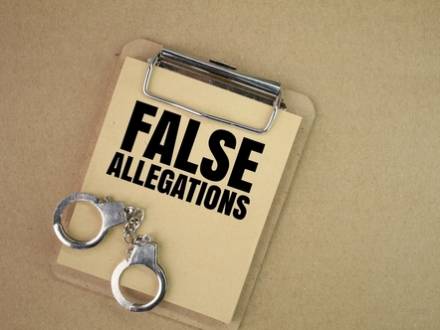 If you are falsely accused of a sex crime in Wisconsin, you should stay silent, preserve evidence, and contact a criminal defense lawyer immediately. False accusations can lead to arrest, criminal charges, and serious damage to your life, even before the truth is fully examined.
If you are falsely accused of a sex crime in Wisconsin, you should stay silent, preserve evidence, and contact a criminal defense lawyer immediately. False accusations can lead to arrest, criminal charges, and serious damage to your life, even before the truth is fully examined.
False accusations occur more often than you might think. A study cited by the National Sexual Violence Resource Center found that false sexual assault reports made up between two and ten percent of reported cases over a ten year period.
If you are facing charges in 2026, our Milwaukee County, WI criminal defense lawyer will ensure your rights are protected and help you build a strong defense strategy.
When Does Reckless Driving Become a Felony in Wisconsin?
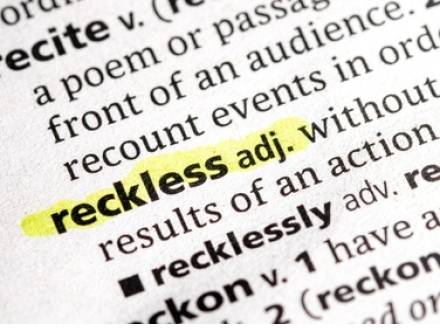 In most cases, reckless driving is charged as a misdemeanor traffic violation. It becomes a felony when the incident results in severe consequences. If you have been charged or are being investigated in 2026, it is normal to feel stressed and uncertain. The difference between a misdemeanor and a felony can have a major impact on your future. Our Racine County, WI reckless driving defense lawyer works with drivers who need clear answers during a difficult time.
In most cases, reckless driving is charged as a misdemeanor traffic violation. It becomes a felony when the incident results in severe consequences. If you have been charged or are being investigated in 2026, it is normal to feel stressed and uncertain. The difference between a misdemeanor and a felony can have a major impact on your future. Our Racine County, WI reckless driving defense lawyer works with drivers who need clear answers during a difficult time.
What Is Considered Reckless Driving in Wisconsin?
Reckless driving is defined under Wisconsin Statute 346.62. A person may be charged if they operate a vehicle in a way that shows disregard for the safety of others.
What Are the Penalties for Getting an OWI with a Child in the Car?
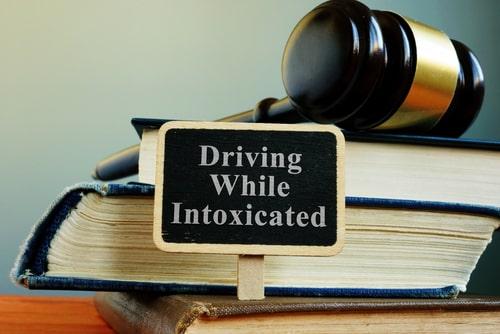 Getting arrested for OWI is a scary experience, but not an uncommon one. Recent national data shows that 804,926 Americans were arrested for suspected impaired driving in one year, representing about 11 percent of all arrests nationwide at that time. So, you are not alone. However, having a child in the car at the time puts additional strain on your case.
Getting arrested for OWI is a scary experience, but not an uncommon one. Recent national data shows that 804,926 Americans were arrested for suspected impaired driving in one year, representing about 11 percent of all arrests nationwide at that time. So, you are not alone. However, having a child in the car at the time puts additional strain on your case.
As of 2026, Wisconsin does not convict a separate crime called "OWI with a child in the car." Instead, the law adds penalty enhancements when a passenger under sixteen is present. Those enhancements can significantly increase the consequences of a conviction.
If you are dealing with an OWI involving a child passenger, a Walworth County, WI OWI defense lawyer can help you understand what Wisconsin law actually requires and what penalties may apply.
Open Carry Laws in Wisconsin: What You Should Know
 Open carry is legal in Wisconsin, but that does not mean it is without rules or risks. Firearm activity remains common across the country. According to recent data from 2025, an estimated 5.2 million guns were sold in the first four months of the year. With so many people lawfully carrying firearms, misunderstandings about open carry laws can easily lead to legal trouble if the rules are not followed.
Open carry is legal in Wisconsin, but that does not mean it is without rules or risks. Firearm activity remains common across the country. According to recent data from 2025, an estimated 5.2 million guns were sold in the first four months of the year. With so many people lawfully carrying firearms, misunderstandings about open carry laws can easily lead to legal trouble if the rules are not followed.
Many people are surprised to learn that openly carrying a firearm can still lead to police contact or a weapons charge if certain laws are violated. Understanding when open carry is allowed, where it is restricted, and how law enforcement may respond is important for anyone who owns or carries a firearm. Our Jefferson County, WI weapons charges defense lawyer can help explain how these laws apply in real situations.
Can I Refuse a Breath Test After Being Pulled Over For DUI?
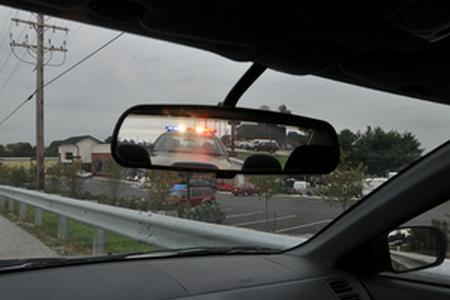 Each year, hundreds of thousands of drivers across the country are stopped and arrested for suspected DUI. In 2025, data based on FBI Uniform Crime Reporting estimates showed that nearly 805,000 people were arrested nationwide for driving under the influence. During these stops, officers may ask drivers to submit to a breath test to measure alcohol concentration.
Each year, hundreds of thousands of drivers across the country are stopped and arrested for suspected DUI. In 2025, data based on FBI Uniform Crime Reporting estimates showed that nearly 805,000 people were arrested nationwide for driving under the influence. During these stops, officers may ask drivers to submit to a breath test to measure alcohol concentration.
In Wisconsin, DUI is officially known as operating while intoxicated, or OWI. While DUI is a commonly used term, OWI is the name used in Wisconsin law. As of 2026, Wisconsin still enforces strict implied consent rules related to breath testing during OWI investigations. If you have been pulled over and asked to take a breath test, guidance from a Waukesha County, WI DUI/OWI defense lawyer can help you understand how refusal works and what it may mean for your license and your case.
What Is Statutory Rape in Wisconsin?
 In Wisconsin, the age of consent for sexual activity is 18 years old. This means a person under 18 cannot legally agree to sexual activity, even if they say yes. Because of this, cases involving teenagers and young adults can still lead to criminal charges for sex crimes. As of 2026, Wisconsin courts do not allow exceptions based on small age differences. If you are facing accusations like this, a Dodge County, WI statutory rape defense lawyer can help you understand what the law says and what steps to take next.
In Wisconsin, the age of consent for sexual activity is 18 years old. This means a person under 18 cannot legally agree to sexual activity, even if they say yes. Because of this, cases involving teenagers and young adults can still lead to criminal charges for sex crimes. As of 2026, Wisconsin courts do not allow exceptions based on small age differences. If you are facing accusations like this, a Dodge County, WI statutory rape defense lawyer can help you understand what the law says and what steps to take next.
How Does Wisconsin Define Statutory Rape?
Wisconsin law does not use the term "statutory rape." Instead, these cases are charged under laws related to sexual assault of a child or sexual intercourse with a minor.
Commit Crimes in WI at 17, Expect to Receive Adult Penalties
 In Wisconsin, committing a crime at 17 usually means facing adult penalties instead of juvenile consequences. Under current Wisconsin law, 17-year-olds are charged in adult criminal court by default, a rule that remains in place in 2026, even as many other states have raised the age for adult prosecution. For example, North Carolina started working on raising the age to 18 nearly a decade ago.
In Wisconsin, committing a crime at 17 usually means facing adult penalties instead of juvenile consequences. Under current Wisconsin law, 17-year-olds are charged in adult criminal court by default, a rule that remains in place in 2026, even as many other states have raised the age for adult prosecution. For example, North Carolina started working on raising the age to 18 nearly a decade ago.
While some cases are more serious than others, the impact of being treated as an adult can be significant regardless of the charge. The Ozaukee County, WI juvenile defense lawyer at Bucher Law Group, LLC can help explain how this law applies to your specific case and what options you may have early on.
Can I Carry a Concealed Weapon in Wisconsin?
 You may legally carry a concealed weapon in Wisconsin, as long as you follow the rules. Whether carrying is legal depends on your license status, where the weapon is carried, and whether any legal restrictions apply to you.
You may legally carry a concealed weapon in Wisconsin, as long as you follow the rules. Whether carrying is legal depends on your license status, where the weapon is carried, and whether any legal restrictions apply to you.
Concealed carry is common across Wisconsin. According to the Wisconsin Department of Justice Concealed Carry Annual Report released in 2025, over 70,000 people applied for a concealed carry license in one year. Even so, mistakes can still lead to criminal charges. To better understand these laws, talk with our Milwaukee County, WI weapons charge defense lawyer.
Who Can Legally Carry a Concealed Weapon in Wisconsin?
Wisconsin allows concealed carry, but most people must have a valid concealed carry license to do so legally. You cannot lawfully carry a hidden firearm unless you meet the state’s licensing requirements.
What Happens When Someone Lies About Sexual Assault in Wisconsin?
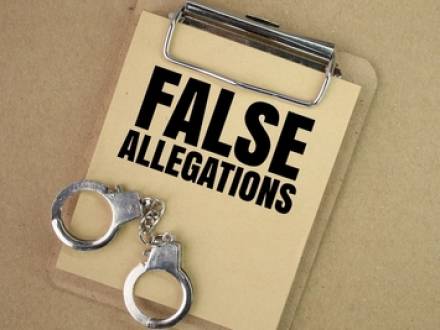 In Wisconsin, an accusation of sexual assault alone can lead to arrest, no-contact orders, damage to your reputation, and long-term personal consequences even before charges are filed. In 2025, investigations can move fast and feel one-sided early on. If you have been falsely accused of sexual assault, contact a Racine County, WI sex crimes defense lawyer at Bucher Law Group, LLC as soon as you realize how fast these cases move.
In Wisconsin, an accusation of sexual assault alone can lead to arrest, no-contact orders, damage to your reputation, and long-term personal consequences even before charges are filed. In 2025, investigations can move fast and feel one-sided early on. If you have been falsely accused of sexual assault, contact a Racine County, WI sex crimes defense lawyer at Bucher Law Group, LLC as soon as you realize how fast these cases move.
How Are Sexual Assault Allegations Investigated in Wisconsin?
Sexual assault crimes in Wisconsin are defined under Wis. Stat. § 940.225. The law covers several degrees of sexual assault, depending on issues such as consent, force, age, and injury. Convictions can result in prison time, lengthy supervision, and mandatory sex offender registration. These consequences can affect employment, housing, and family relationships for life.
How Serious Is a Hit-and-Run Charge in Wisconsin?
 Many Wisconsin drivers would be surprised to learn how serious a hit-and-run charge can be. Even leaving the scene of a very minor fender bender in a parking lot can potentially lead to a suspended license, criminal charges, and a permanent record. And if a person is injured – or worse – the penalties can escalate quickly into felony charges with possible time in prison.
Many Wisconsin drivers would be surprised to learn how serious a hit-and-run charge can be. Even leaving the scene of a very minor fender bender in a parking lot can potentially lead to a suspended license, criminal charges, and a permanent record. And if a person is injured – or worse – the penalties can escalate quickly into felony charges with possible time in prison.
The moment you drive away from a crash, whether out of panic, confusion, or because you did not realize the damage, you could face consequences that can follow you for years or the rest of your life. What may seem like a small mistake can quickly escalate, creating significant legal risks. Before you speak with the police, it is essential that you fully understand what is at stake. An experienced Jefferson County, WI, criminal defense lawyer can ensure your rights and future are fully protected.














 262-446-9222
262-446-9222 262-446-9885
262-446-9885






